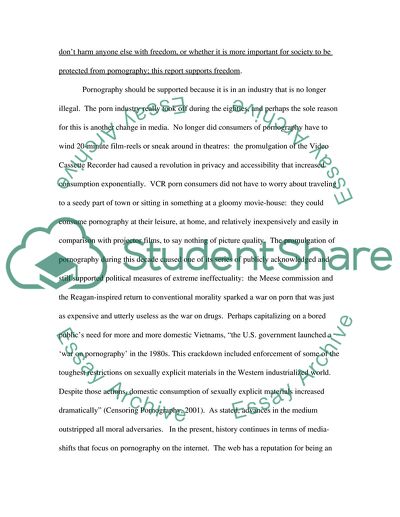Cite this document
(“Should Pornography Be Restricted by Law Term Paper”, n.d.)
Should Pornography Be Restricted by Law Term Paper. Retrieved from https://studentshare.org/social-science/1721392-should-pornography-be-restricted-by-law
Should Pornography Be Restricted by Law Term Paper. Retrieved from https://studentshare.org/social-science/1721392-should-pornography-be-restricted-by-law
(Should Pornography Be Restricted by Law Term Paper)
Should Pornography Be Restricted by Law Term Paper. https://studentshare.org/social-science/1721392-should-pornography-be-restricted-by-law.
Should Pornography Be Restricted by Law Term Paper. https://studentshare.org/social-science/1721392-should-pornography-be-restricted-by-law.
“Should Pornography Be Restricted by Law Term Paper”, n.d. https://studentshare.org/social-science/1721392-should-pornography-be-restricted-by-law.


